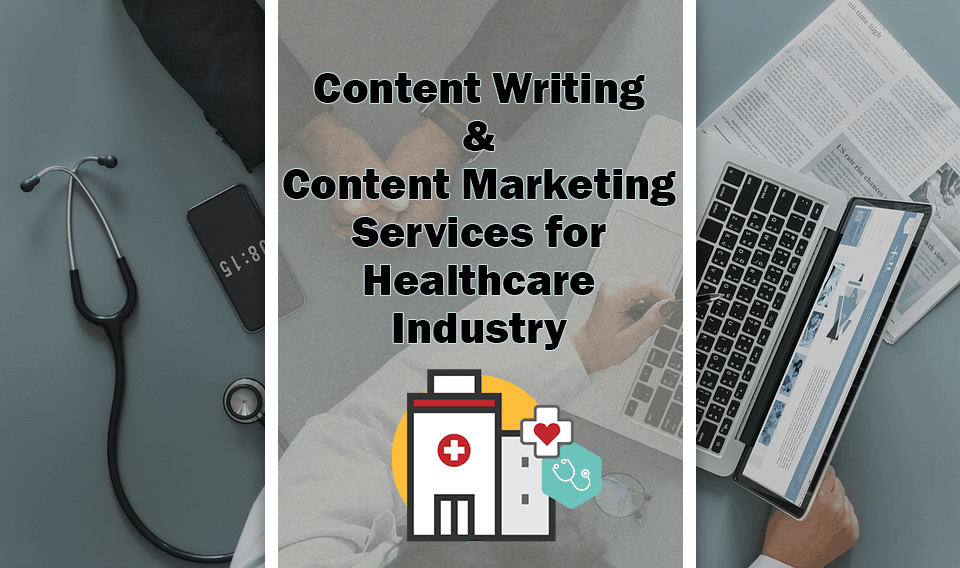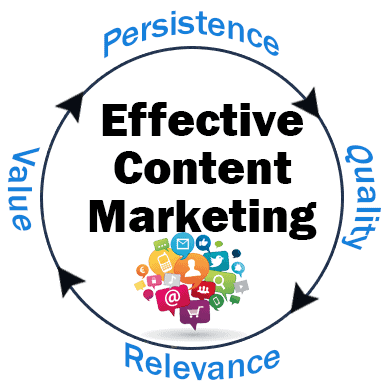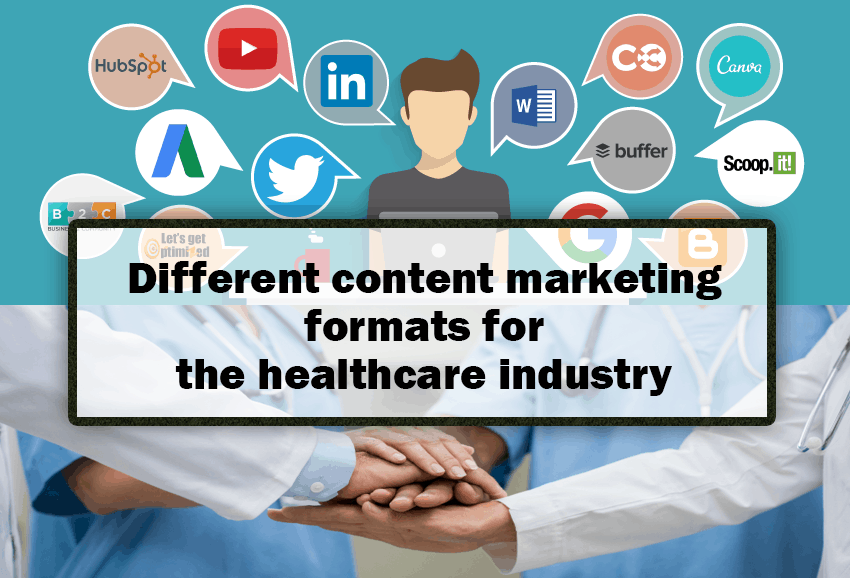
Make a meaningful brand presence for your healthcare business through Credible Content writing and marketing services.
Looking for a content writer for a hospital website?
Need content writing services for a hospital website?
Require blog writing services for a hospital website?
The healthcare industry is quickly embracing the Internet to reach a wider audience and quality content writing and content marketing services can help you create an effective presence on the web.
Whether you are selling food supplements or other healthcare products and services, when you come online, you not only want to generate more business, you also want to make it easier for your existing customers and patients to avail your products and services.
Even your existing partners, suppliers, investors and contractors constantly scour the Internet to find useful information that helps them collaborate with you and strike up profitable partnerships.
The entire essence of content marketing is writing, publishing and distributing content that engages your customers in a meaningful manner.
People no longer want to hear about just your products, they also want to read about, listen to, and watch, stories about how your products and services are making a positive difference to people’s lives.
Need a content writer for your hospital website? What to look for?
- Medical Knowledge: Seek a content writer with a grasp of healthcare terminology.
- Empathy in Writing: Look for a writer who can convey compassion in patient-focused content.
- Understanding of Regulations: Ensure the writer is familiar with healthcare regulations and privacy standards. – Healthcare industry
- Emergency Communication Skills: Assess the ability to craft urgent messages during health crises.
- Patient-Centric Tone: Look for a writer who can maintain a compassionate and understanding tone.
- Health Education Expertise: Seek someone experienced in providing educational content about health. – Hospital website
- Accreditation Awareness: Prioritize candidates who understand and can highlight medical certifications.
- Success Stories: Look for a writer who can effectively present real-life success stories and patient testimonials.
- Promotion of Preventive Care: Assess the ability to emphasize the importance of preventive healthcare.
- Clear Medical Service Descriptions: Ensure the writer can articulate different medical services clearly. – Hospital website
- Community Involvement: Seek evidence of the writer showcasing the hospital’s engagement in the local community.
- Health Tips Proficiency: Assess the ability to provide practical health tips for overall well-being.
- Emergency Contact Detail Inclusion: Check for a focus on providing easily accessible emergency contact details.
- Physician Profile Writing Skills: Look for proficiency in highlighting the expertise of medical professionals.
- Wellness Program Promotion: Seek writers experienced in promoting hospital-sponsored wellness programs.
- Communication during Crises: Assess preparedness for effective communication during healthcare crises. – Hospital website
- Patient Rights Communication: Look for the ability to effectively communicate patient rights and hospital commitments.
- Support Resource Integration: Assess the inclusion of links to support groups and additional healthcare resources.
- Family-Friendly Language Use: Seek candidates who can use language suitable for a broad audience, including families.
- Multilingual Consideration: Prioritize candidates who can accommodate diverse language preferences and literacy levels.
Why does hospital website need a professional content writer?
Wondering why you need a content writing service for your hospital website?
- Ensures accurate and clear communication of medical information.
- Maintains a professional tone that instils trust in visitors.
- Adheres to medical terminology and industry standards.
- Tailors content to diverse audiences, from patients to healthcare professionals.
- Enhances SEO to improve the website’s online visibility.
- Provides up-to-date and relevant information on medical services.
- Creates engaging and informative content for patient education.
- Highlights the hospital’s achievements and accreditations.
- Optimizes content for mobile users for accessibility.
- Manages and updates the website regularly with fresh information.
- Craft compelling stories of patient success and recovery.
- Conveys emergency information with clarity and urgency.
- Ensures compliance with healthcare regulations and standards.
- Fosters a compassionate and empathetic tone in patient communications.
- Streamlines navigation for a user-friendly experience.
- Develops content for healthcare blog posts to educate and inform.
- Maintains consistency in branding and messaging across the website.
- Facilitates seamless integration with social media platforms.
- Incorporates multimedia elements for a visually appealing experience.
- Demonstrates a commitment to patient care and well-being through thoughtful content.
What is medical content writing?

Medical content writing is a specialized skill for creating healthcare-related materials.
It’s about making complex medical information easy to understand.
Writers need to know medical terms, follow ethical standards, and show empathy, especially for sensitive topics.
They play a vital role in sharing accurate healthcare information with both professionals and the public.
This writing covers various formats like websites, brochures, blogs, and social media, supporting communication in medical institutions.
In simple terms, medical content writing fills the gap between complex medical knowledge and the need for clear information.
It balances technical accuracy and simplicity to meet the needs of professionals and the public.
Whether explaining treatments or promoting healthy habits, the goal is to empower people with knowledge and improve public health understanding.
Here is how a medical content writer would explain the concept of taking a blood sample for testing without causing discomfort to a patient:
In a blood test, a small sample of blood is taken from a patient to check for various health indicators.
The process is typically quick and causes minimal discomfort.
A healthcare professional will first tie a snug band around your arm to make the veins more visible.
Then, they’ll clean the area with a sterile swab and insert a thin needle into a vein, usually in your arm.
The needle is connected to a small tube that collects the blood sample.
After the sample is collected, the needle is removed, and a cotton ball or bandage is applied to the puncture site.
It’s important to note that the discomfort is usually brief, and many people report feeling only a slight pinch or sting.
To enhance comfort, patients can try to relax and communicate any concerns or anxieties to the healthcare professional.
Additionally, staying well-hydrated before the test can make it easier to locate veins, making the process smoother.
Overall, while the idea of getting a blood test might be unsettling for some, the procedure is quick, and healthcare professionals are trained to minimize any discomfort during the process.
Blog writing services for hospital website – benefits of publishing blog
Publishing a blog on a hospital website:
- Educates Patients: Shares valuable health information.
- Builds Trust: Establishes the hospital as an authority.
- Enhances SEO: Improves online visibility for healthcare-related searches.
- Patient Engagement: Encourages interaction and comments.
- Updates on Services: Communicates new medical services or treatments.
- Showcases Expertise: Highlights the hospital’s medical professionals. – Blog writing services
- Health Tips: Offers practical advice for maintaining well-being.
- Community Involvement: Shares hospital events and community outreach.
- Patient Stories: Inspires with real-life success and recovery narratives.
- Preventive Care: Promotes awareness of preventive healthcare measures. – Blog writing services for healthcare industry
- News and Research: Communicates medical advancements and research.
- Emergency Preparedness: Provides information during health crises.
- Humanizes the Hospital: Connects on a personal level with the audience.
- Wellness Events: Promotes and covers hospital-sponsored wellness events.
- FAQs: Answers common health-related questions from the community.
- Timely Health Topics: Addresses current health concerns and trends.
- Social Media Integration: Facilitates sharing and engagement on social platforms.
- Encourages Appointments: Promotes regular check-ups and screenings. – Blog writing services for hospital website
- Connects with Referring Physicians: Strengthens ties with medical partners.
- Community Health Resources: Shares local resources for a healthier community.
How content writing and content marketing services can give you a strong foothold in the healthcare industry
Have you ever visited the Mayo Clinic website? Even WebMD? If you are in the healthcare business or industry, there is a bleak chance that you have tried to search for something related to your field and you haven’t come across these two websites.
These two websites, and many more such websites, have made a solid presence on the Internet through high-quality content that informs and helps people.
There is plenty of information available on the Internet.
This is good and bad.
Good, because it has increased people’s tendency to do research before finalizing on a particular product or service. They are more informed. They take better decisions.
Targeted content writing and content marketing has also created sort of a level playing field in the manner that, provided you go on publishing meaningful content, you can compete with even the biggest websites on the Internet.
So, lots of information is a win-win situation for healthcare services and products providers, and consumers.
Bad, because it needlessly creates lots of competition for even good healthcare service providers.
Since there is too much content, there is too much noise. Not all content is good.
In fact, most of the content is published for better search engine rankings, paying scant regard to the needs of the visitors.
Your consumers end up confused. There are already too many distractions on the Internet and relentless content, merely to create presence on social media websites and to get better SEO, doesn’t help much.
But, this is a reality.
On social media it is not easy to promote lousy content because over there, content is mostly promoted by individuals, voluntarily.
Search engines, no matter how advanced they become, still end up indexing and ranking meaningless content.
Companies like Google are constantly updating their algorithms to keep inferior-quality content away, since there is too much content on the Internet, good, high-quality content ends up getting ignored by the target audience.
What’s the solution then?
Persistence. Quality. Relevance. Value. Persistence.
Persistence is important because no matter how good and directional your intentions are, unless you are persistent, whether it’s healthcare industry or another industry, content marketing doesn’t work. It’s because millions of content pieces are being pumped into the Internet on a daily basis.
Quality improves your search engine rankings. It also improves your conversion rate. It helps you establish yourself as an authority in your field and this is very important in the healthcare industry.
Your content needs to be relevant. Otherwise it is going to be of no use – neither to you, nor your target audience.
Your content should also provide value to your target audience. If it is not useful, they’re not going to respond to it.

You need to persist with all the three attributes mentioned above.
The most suitable content writing and content marketing formats for healthcare industry

There are many ways you can create and publish suitable content catering to the healthcare industry, including
- Blog posts about health-related issues.
- Press releases about the launch of new products or services, or the new partnerships.
- Case studies about how particular health products or services were used for the benefit of individuals.
- E-books about the lifestyle changes people make using your products and services.
- Research papers.
- Podcasts.
- Social media campaigns.
- Email marketing campaigns.
- Print magazines and newsletters.
- YouTube videos.
- Landing pages.
- FAQs.
- Product-specific description pages.
- Dedicated websites.
- Infographics.
- GIFs.
You choose a platform that helps you reach out to your target audience.
The characteristics of medical content writing
- Precision in Language: Medical content requires accurate and specific terminology.
- Clarity of Expression: Ensuring information is easily understood by diverse audiences.
- Adherence to Ethical Standards: Maintaining ethical guidelines in medical communication.
- Empathy in Tone: Conveying a compassionate tone, especially when discussing sensitive topics. – Medical content writing
- Incorporation of Evidence-Based Information: Relying on credible sources and evidence.
- Compliance with Privacy Laws: Upholding patient confidentiality and privacy regulations.
- Understanding of Target Audience: Tailoring content to the knowledge level of the intended readers.
- Awareness of Cultural Sensitivities: Considering diverse cultural perspectives and sensitivities.
- Balancing Detail and Simplicity: Presenting complex medical information in a clear and simplified manner. – Medical content writing
- Emphasis on Patient Education: Prioritizing content that educates and informs patients.
- Consistency in Branding: Maintaining a consistent voice and messaging for the medical institution.
- Adaptability to Various Formats: Writing for different platforms, from websites to brochures.
- Attention to SEO Practices: Incorporating search engine optimization techniques for online visibility.
- Precision in Legal Compliance: Ensuring content aligns with legal regulations governing medical information.
- Effective Use of Visuals: Integrating diagrams or images to enhance understanding.
- Engagement with Healthcare Professionals: Creating content that appeals to both professionals and the general public. – Medical content writing
- Appropriate Use of Jargon: Balancing technical terms with layman-friendly explanations.
- Updates on Medical Advancements: Keeping content current with the latest research and developments.
- Consideration of Readability Metrics: Structuring content for optimal readability and comprehension.
- Accessibility for All Audiences: Ensuring content is accessible to individuals with diverse abilities.
- Timeliness in Communication: Communicating medical news and updates promptly.
- Patient Empowerment: Encouraging patients to take an active role in their healthcare decisions.
- Integration of Patient Stories: Humanizing medical content through real-life experiences.
- Navigational Clarity: Ensuring easy navigation through medical websites and documents. – Medical content writing
- Promotion of Preventive Care: Emphasizing the importance of proactive health measures.
- Transparency in Information: Clearly stating the limitations and uncertainties in medical discussions.
- Addressing Common Concerns: Anticipating and addressing frequently asked questions from patients.
- Emergency Preparedness Communication: Providing clear guidance during health emergencies.
- Collaboration with Medical Professionals: Working closely with healthcare experts for accurate content.
- Strategic Use of Keywords: Incorporating relevant keywords without compromising accuracy.
- Encouraging Healthy Lifestyles: Promoting lifestyle choices conducive to well-being.
- Inclusion of Local Health Resources: Providing information about community-specific healthcare resources.
- Promotion of Mental Health Awareness: Addressing mental health issues with sensitivity and understanding.
- Facilitation of Informed Decision-Making: Providing information that helps patients make informed choices.
- Readability Across Devices: Ensuring content is accessible and readable on various devices.
What sort of content writing and content marketing is best for the healthcare industry?
A unique thing about the healthcare industry is when it comes to content marketing, almost every channel can be creatively used.
Whether someone is using Facebook, Twitter, Instagram, LinkedIn or Pinterest, he or she wants good health. Whether someone is in the fashion industry or data sciences, everyone wants to be healthy and is concerned about health issues.
A typical customer or patient is looking for information that can help him or her take the right decision.
Naturally they have a lot at stake when they consume your content. Based on your content, they are going to educate themselves and make a decision for themselves that is going to have an impact on their health.
When writing and distributing content on healthcare, you may like to keep the following in mind:
- Write for your audience: The ultimate aim of your content must be to address the concerns of your audience – your prospective customers and patients. Inform them about the benefits of using your product or service. Convey to them that it’s their good that is in your mind.
- Keep your writing conversational: People in need of medical advice and healthcare-related content might be in an emotional state and they need a human voice even when they are reading. When writing content, the content must be written from their perspective.
- Avoid self-promotion: Remember that you are offering a solution because you want to solve their problems. If you are creating and publishing content on skin care, although the ultimate aim is to sell your skin care product, through your content you want to help people make the right decision. Always stick to the facts. Always provide the right information. Avoid self-promotion as much as possible.
How is content writing for hospital website different from writing content for usual business websites?
- Medical Terminology: Requires familiarity with specialized healthcare terminology.
- Patient-Centric Approach: Prioritizes information relevant to patients’ needs and concerns.
- Regulatory Compliance: Must adhere to healthcare regulations and privacy standards. – Content writer for healthcare industry
- Emergency Communication: Involves crafting urgent messages during health crises.
- Empathetic Tone: Demands a compassionate and understanding tone in patient communications.
- Health Education: Focuses on providing educational content about various health conditions.
- Accreditations and Certifications: Highlights the hospital’s medical certifications and accreditations.
- Patient Stories: Features real-life success stories and patient testimonials.
- Preventive Care Promotion: Emphasizes the importance of preventive healthcare measures. – Content writer for hospital website
- Medical Services Descriptions: Clearly outlines different medical services offered by the hospital. – Blog writing services
- Community Outreach: Showcases the hospital’s involvement in the local community.
- Health Tips and Advice: Offers practical health tips for maintaining overall well-being.
- Emergency Contact Information: Provides easily accessible emergency contact details.
- Physician Profiles: Highlights the expertise and qualifications of medical professionals.
- Wellness Programs: Promotes hospital-sponsored wellness programs and events. – Healthcare industry
- Public Health Information: Shares information about public health initiatives and campaigns.
- Patient Rights and Responsibilities: Communicates patient rights and the hospital’s commitment to them. – Hospital website
- Supportive Resources: Includes links to support groups and additional healthcare resources. – Blog writing services
- Family-Centered Language: Utilizes family-friendly language for a broad audience.
- Pediatric Content: Addresses unique healthcare needs for pediatric patients.
- Multilingual Considerations: Accommodates diverse language preferences and literacy levels.
- Accessibility Information: Ensures content is accessible to individuals with disabilities.
- Crisis Communication Plan: Involves preparation for communicating during healthcare crises. – Content writer for a hospital website
- Infection Control Measures: Highlights the hospital’s commitment to infection prevention.
- Visitor Guidelines: Communicates policies for hospital visitors and patient guests.
- Health Insurance Information: Provides guidance on navigating health insurance matters. – Blog writing services
- Online Appointment Booking: Streamlines the process of scheduling medical appointments.
- Patient Portal Integration: Incorporates information about accessing and using patient portals.
- Pregnancy and Maternity Services: Addresses specific healthcare needs during pregnancy and childbirth.
- Rehabilitation Services: Details rehabilitation and recovery services offered by the hospital.
- Pharmacy Information: Includes details about the hospital’s pharmacy services.
- Medical Research Updates: Communicates the hospital’s involvement in medical research and advancements.
- Pediatric Services: Describes specialized healthcare services for children.
- Elderly Care Information: Addresses healthcare concerns related to the elderly population.
- End-of-Life Care Resources: Provides information on hospice and end-of-life care options.
Why quality content is very important for your healthcare business
Trust is a very big issue when it comes to healthcare and medical services. People will be putting their health at stake when they make decisions based on the content that you are publishing.
This is why it’s very important that you publish only quality content on your website, blog and social media profiles.
What’s quality content?
Content that is well written, professional but personal, trustworthy, helpful and valuable.
If your content is not well-written, people may think that this organization shouldn’t be trusted – if they don’t pay attention to the quality of their content, how can they be expected to pay attention to the quality of their products or services?
Your content must inspire confidence among your prospective customers and patients.
Quality content is also important for better search engine rankings. Google is constantly improving its algorithm to prefer only quality content.
Why partner with Credible Content for your healthcare industry content writing and content marketing needs?
Quality. Relevance. Professional. Dependable.
Here at Credible Content I (Amrit Hallan) have been providing content writing services for more than 10 years and have covered multiple industries, including healthcare.
When you work with Credible Content, you will get
- Well-written, quality content with no grammar and spelling mistakes.
- International style of writing.
- Dependable delivery.
- Customer-centric writing.
- Search engine-friendly and mobile-friendly writing.
- Technical as well as informational content.
I mostly write on my own. I have a few writers working with me but I collaborate with them only when the work is too much and the client doesn’t insist on just my writing.
If you’re looking for a content writing and content marketing service that can help you take your healthcare business to the next level, contact me.



